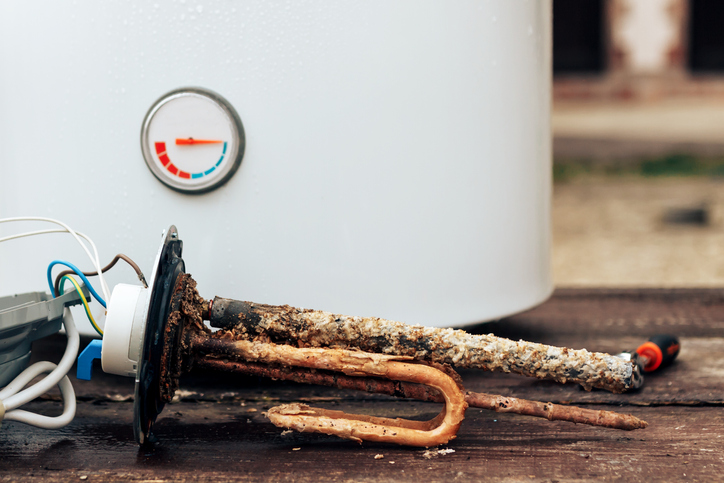- Home
- How to
- How to
- Services
- Services
- Maintenance Plan
- Location
- Guides
- Guides
- No Hot Water – Self help
- Unvented Water Heater
- Unvented Water Heater Faults
- G3 Building Regulations
- Thermal Store Water Heaters
- Thermal Store Faults
- Gledhill ElectraMate
- Gledhill PulsaCoil
- Gledhill Torrent
- Gledhill Stainless Lite
- OSO Unvented Heater
- MegaFlo – Heatrae Sadia
- Santon Premier Plus
- Albion
- Manco Riverstream and Powerstream
- Manco Gladiator & Stirling
- Telford Tempest
- Safety Considerations Unvented Cylinders
- Reduce Your Water Heating Bill
- Range Tribune
- About Us
- About us
- Forum
- Contact

-
Call Now
Specialists in Electric Hot Water Cylinders
The Most Common Water Heater Problems
In a perfect world, we’d all have access to mains pressure hot water every time we opened the tap. We’d have plenty of hot water for doing the dishes, bathing, and all our other needs. However, we don’t live in such a world. Many different problems can affect your unvented cylinder and its ability to deliver a constant supply of hot water. In this post, we’ll explore some of the most common water heater problems and what homeowners should know about them.
1. Temperature Issues
Some of the most common issues homeowners encounter today with unvented cylinders relate to temperature. Whether the water is cold, merely warm, or too hot, here is what you should know.
Cold – If the water is cold, check to make sure the circuit breaker hasn’t tripped. It could also be related to a failed immersion heater or burner or a failed thermostat.
Warm – If your water is warm but not hot, it could be due to many different reasons. The most common is that all the hot water has been used and the cylinder is refilling/reheating. However, it could also be that the thermostat is too low, or that one of the immersion heaters has failed.
Too Hot – This is usually due to the thermostat being set too high. You can manually adjust it to your preferences.
2. Discoloured Water
If you open the hot tap and discoloured water comes out, it could be due to a couple of reasons. One of the most common culprits is rust. If your cylinder is beginning to rust, it’s time to replace it. Another reason is mineral build-up on the bottom of the cylinder and heating elements. Annual flushes can prevent this from happening.
3. Leaks
Ideally, the water will stay inside your unvented cylinder. Leaks can be very dangerous, and in some cases, they can damage the structure of your home. Some of the most common leak-related issues with unvented cylinders include:
Pressure Relief Valve – All unvented cylinders have a valve that’s designed to function if the cylinder’s pressure rises too much. If the valve fails, the cylinder will leak.
Drain Valve – All unvented cylinders are manufactured with a drain valve to allow the unit to be drained of water. If the valve fails, it will begin leaking.
Cylinder Wall/Base – If your cylinder is 10 years old or older, there is a chance that it will begin leaking from the wall or base due to rust and corrosion. In this case, the entire cylinder will need to be replaced.
4. Noises
In most cases, you will only notice the sounds of water running into the cylinder or the sound of gas being used when it fires (if yours is gas-fired). However, you may also notice popping or knocking sounds. These are caused by the build-up of sediment within the cylinder. Regular flushes as part of your required annual maintenance will reduce or eliminate those noises.
Experiencing problems with your unvented cylinder? Contact EasyFlow today to schedule an inspection with one of our certified plumbers.
Iain, Nantwich
13 October 2025
Annual Service
Excellent service as always.. Highly recommendable.
Peter , Nantwich
16 September 2025
Annual Service
Very pleased with all aspects of the work completed by your knowledgeable staff.
Barry, Royton
13 June 2025
Replacement Valves
Tom, Manchester
20 May 2025
Replacement Valves
Raymond, Lancashire
1 May 2025
Annual Service
Vickie, Didsbury
10 April 2025
Annual Service
Raymond, Reddish
17 March 2025
No Hot Water
Brenda , Liverpool
12 February 2025
Installation
Gianfranco, Uk
18 February 2025
Annual Service
As always the serrvice was done efficiently and the surrounding area left clean and tidy.
Anne, Manchester
30 January 2025
Annual Service

© 2026 EasyFlow Water Limited. All rights reserved








Find out what our clients are saying about the services we provide
Click to view